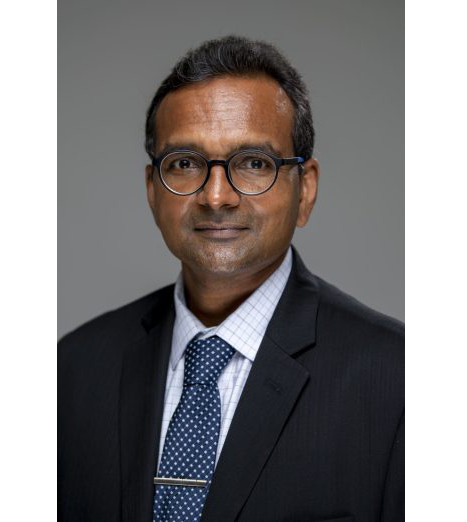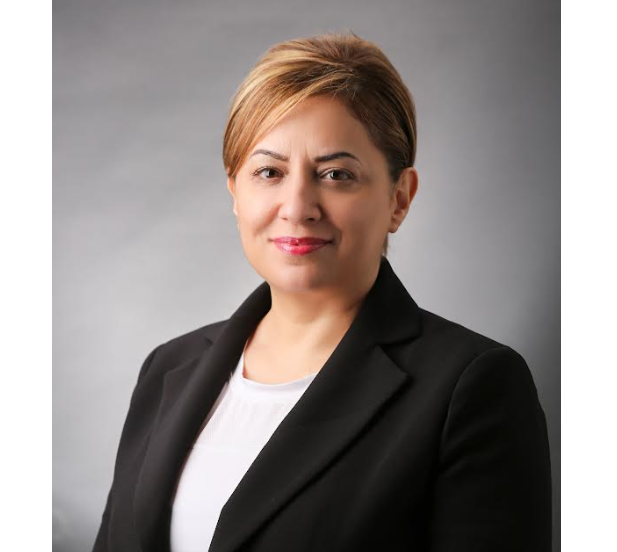In August, Illinois State University’s College of Engineering welcomed Dr. Vijay Devabhaktuni, founding chair of electrical engineering, and Dr. Nesrin Ozalp, founding chair of mechanical engineering.
We recently asked them about their strategies and vision for prospective students and how the new engineering programs will create a pipeline of highly skilled graduates who are job ready on day one.
Dr. Vijay Devabhaktuni’s education, skills, and experience:
- Dr. Devabhaktuni received his Ph.D. in electrical engineering, with a prestigious senate medal, from Carleton University in Ottawa, Canada.
- His first academic appointment was the highly competitive Canada Research chair at Concordia University in Montreal, Canada.
- Between 2012 and 2017, he held research leadership roles at the University of Toledo (an R2 Carnegie institution) in the College of Engineering, in the College of Medicine and Life Sciences, and in the Office of the Vice President, CIO/CTO. Between 2018 and 2023, he held department chair positions at Purdue University Northwest and University of Maine (an R1 Carnegie institution), where he focused on faculty and student success.
- He won teaching excellence awards at Carleton University, University of Calgary, and University of Toledo. He graduated 14 Ph.D.s and 64 M.S. thesis students. Google Scholar shows his work is cited 8,632 times with a h-index of 42 and i10-index of 108.
- He actively collaborated with an HBCU on two NSF collaborative grants. At both Purdue University Northwest and University of Maine, he supported Society for Women Engineers (SWE) student branches.
What attracted you about ISU and coming into the role as its first founding chair of electrical engineering?
From my first visit to ISU, I felt I was joining a strong community and a team of faculty and staff. The senior leadership seemed likeable and progressive, and I sensed I would receive constructive and positive support in my ambitious, challenging role as founding chair. I also admired the emphasis on building a diverse College of Engineering team, which meant a lot to me as a first-generation immigrant. Through my background, I bring an advantage of being able to connect with first generation college students, as well as students of color. Coming from a rural community and a family of farmers, I hope to make a long-term, positive impact on rural families in Central Illinois and beyond, minority and underrepresented families, and economically disadvantaged families, with whom I can easily relate and readily connect.
What goals do you have for the program and our prospective engineering students?
I want to build a welcoming departmental structure where students from all backgrounds can thrive and where all activities enhance program quality and foster student success. Partnering with community and industry leaders, we hope to continuously improve the electrical engineering curriculum to focus on high demand skills using state-of-the-art equipment. Dean Keyser has a vision to invest not only in instructional labs but also in design studios, where students can hone their skills in creativity, design, innovation, and entrepreneurship. We want our students to learn hands-on skills to secure high-paying jobs and uplift their families in terms of economic status and higher education.
Dr. Nesrin Ozalp’s education, skills, and experience:
- Dr. Ozalp received her Ph.D. from the University of Washington’s Mechanical Engineering Department and her MSc in Mechanical Engineering from Stanford University.
- She specializes in the areas of experimental and numerical study of thermal transport processes with particular focus on multiphase convective and radiative heat transfer analysis of solar thermochemical processes with non-linear temperature patterns and turbulent flow dynamics.
- She is past chair of ASME Solar Energy Executive Committee, chair of ASME Heat Transfer and Thermal Sciences Education technical committee, Inaugural Executive Committee member of the American Society of Thermal Fluids Engineers, and General Chair and/or Technical Program Chair of several ASME and ASTFE conferences on Heat Transfer and Energy Sustainability.
- She has received many research, teaching, and service awards, including the ASME Yellot Award, ASME Dedicated Service Award, Outstanding Reviewer Award by the ASME Heat Transfer Division, and the College-Level Distinguished Teaching Award by the Texas A&M Association of Former Students. She is an ASME Fellow and an ASTFE Fellow.
What excites you the most, as you see the College of Engineering curricular and facility designs progressing?
What excites me the most is the transformation of the junior and senior design studios. The junior design studio empowers freshmen to dive into creativity and innovation from the get-go, fostering a hands-on approach as they embark on their engineering journey at Illinois State University. On the other hand, the senior design studio offers a space where students can reach their maturity and apply their knowledge to real-world challenges, equipping them with the skills they need as they approach graduation. I am also excited about the increased industry involvement, as it bridges the gap between academia and real-world applications. This, along with curriculum enhancements and cutting-edge facility designs, will contribute to producing career-ready students from day one.
What key aspects of ISU’s new engineering programs will set up prospective students for success?
Fostering a strong collaboration between academia, industry, entrepreneurship platforms, and an entrepreneurial spirit within the college will be key to our students’ success. This, combined with our core values of engagement of underrepresented and minority students and a strong emphasis on diversity, equity, and inclusion, will equip them with practical skills and knowledge, ensuring a smoother transition into the workforce.
The College of Engineering is slated to open to its first students in the fall of 2025.
For more information, visit ISU College of Engineering.


